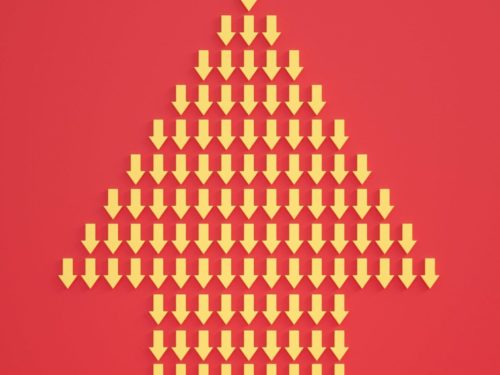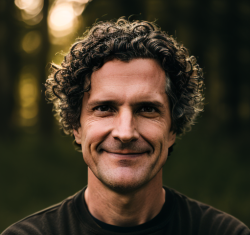
The analytical juggler
Have you ever tried to juggle with your intellect? Knowing the physics of the objects in the air doesn’t help. Juggling requires practicing an embodied, intuitive set of motions. You learn to trust your hands will know what to do.
That’s generally not how we’re taught to solve problems. Instead, we collect data, analyze, and use reason to make strategic choices.
The analytical approach works great for some types of problems. But when you’re in a situation that’s unpredictable and constantly changing, you need a juggler’s ability to improv more than an accountant’s calculation.
That’s pretty much any time you’re trying to create positive change.
Cynefin

In 2007, David J. Snowden and Mary E. Boone wrote an article for the Harvard Business Review that should be required reading for anyone interested in being a catalyst for change. They introduced a framework called Cynefin.
Cynefin is a burdensome name. But it brilliantly defines a reality that’s easy to miss. There are four types of situations that leaders find themselves in: simple, complicated, complex, and chaotic.
Simple
Think of baking a cake from a box. There are few steps. The relationship between cause and effect is clear, quick, and easy to replicate. It requires very little knowledge, effort, or resources. This is a simple situation.
These are rare. Even things that seem simple can quickly become not so. Brushing teeth seems simple. Until you break your arm and must use your non-dominant hand. Asking a loved one to pick up a loaf of bread seems simple. Until they come home late, with the WRONG loaf, after making three other stops without telling you.
Complicated
Complicated situations are more difficult, like sending a rocket to the moon. They are replicable, but require tremendous amounts of information, expertise, skill, and resources. The “distance” between cause and effect is separated by many challenging steps.
Most of us assume life is complicated. We believe that, with enough foresight, hard work, and strategic thinking, we can create outcomes we want.
So we track budgets, think about what could go wrong, and plan for contingencies. This is the approach we use to buy a house, buy insurance, and plan for retirement. It’s how many people choose a partner and what career to pursue.
This approach isn’t bad. It provides a sense of safety and control and can set us in a general direction. We can minimize risk, won’t have to be vulnerable, and won’t ever have to feel embarrassed.
This is great except that it isn’t realistic. In fact, it’s more likely that things WON’T go as we plan. When was the last time something went just as you planned?
When we approach our life and work as if they’re complicated, we invest a lot of time, energy, and resources into things like expertise, logic, metrics, and planning.
These aren’t so helpful in complex situations.

Complex
Complex situations are constantly changing. The relationship between cause and effect is only known in hindsight and may never repeat.
That’s worth repeating. You only know why something worked AFTER it happens. And it may NEVER happen that way again!
So much for planning.
In complex situations, everything is evolving and influencing everything else. What happens next is impossible to predict because there are so many variables.
It’s like raising children. Two children can be raised by the same parents in the same house with the same opportunities and challenges…and will ALWAYS turn out to be unique people.
There has never been a child replicated like a cake from a box.
This is true when it comes to situations involving the economy, the environment, our careers, families, communities, and relationships.
Because you can’t control what will happen, you need to become comfortable with the ambiguous unknown. You need to learn to experience difficult feelings and discover the insights they have to offer. You need to practice living with an open heart, rather than a legalistic mind.
When you do, you CAN make a difference in complex system. It’s more like improvising in a jazz quartet or surfing a wave than making an argument to a jury.
That’s a way of being most of us aren’t taught. Yet it’s an ability already within each of us.
Why? Because we ourselves are a complex system. We have only ever existed within complex systems. We are a part of Nature, the most robust complex systems in the Universe that we know of.
Not convinced? Consider what it’s like to be in conversation. Every time you contribute to a conversation, you:
Arrange words in a unique sequence…
…that fit a never-before-experienced moment…
…to create meaning…
…that is responsive to the other person…
…whose words and actions you can’t predict…
…without planning it out beforehand!

This is a fluent act of surfing complexity. You do it every day.
How does this relate to wisdom + wealth?
In philanthropic work, it’s easy to assume that controlling money means one has control of a situation.
Banish that thought!
It couldn’t be less true. Money can be a source of influence, but not control. If you presume it provides control, your influence could easily go in the opposite direction of your intention.
Here are some complexity guidelines for creating positive change with wealth. (You might notice they mirror Living Systems design principles.)
Embrace interdependence
Everything is connected to everything else. Your inner demons influence your public effectiveness. Your adversaries influence your intentions. Your diet influences your emotions. Your staff are influenced by their loved ones.
Let go of any sense that you can create an impermeable circle of control. Seek to leverage and learn from all these interconnections rather than minimize them.
Attract and co-create (again, don't control!)
In complex situations, you need to earn trust and opportunity to collaborate. If you try to force partners to take certain actions, even if its “benevolent” force, they won’t do it. Even if they say they are. Even if they intend to. In complex systems, people only support what they really help create.
Give up on force and coercion and build real partnerships instead. You’ll need them to understand what’s really going on (see “unfiltered feedback” below).
What if partners can’t or won’t truly partner with you? What if they’re so seduced by, and/or transfixed on, money that they can’t see you’re a real human being?
This is one of the great tragedies and paradoxes of wealth. There is so much opportunity to create positive change, but interpersonal dynamics make it extremely difficult to capitalize on that opportunity.
It is possible to overcome this, but there’s no equation. It is highly contextualized to you and the particular person you’re interacting with. This is a good example of an issue that benefits from the highly-tailored coaching I do with my clients.
What if partners can’t or won’t truly partner with you? What if they’re so seduced by, and/or transfixed on, money that they can’t see you’re a real human being?
This is one of the great paradoxes of wealth.
Seek unfiltered feedback
When everything’s changing, you need an up-to-date, in-real-time sense for what is happening. “Sense” is the right word. It’s more like a felt, embodied, emotional understanding, not an intellectual one.
Time consuming data collection and analysis aren’t helpful because, by the time the numbers are crunched, they no longer reflect what’s really happening. They are a snapshot of the past.
You get that “sense” through trusting relationships. You need people who will tell you the truth. That means you must be willing to tell them the truth. Loyalty comes through interpersonal mutuality, not bank account transactions. The people you’re paying (whether staff or grantees) have lots of reasons not to tell you the full truth.
You’ll need to do the hard work of earning and keeping trust to earn the right to hear the truth.
No one owes it to you.
Not only that, but you’ll need people telling you the truth from many different points of view.
Leverage diverse perspectives
Have you ever drawn a still life in an art class? Students sit in a circle around a collection of objects and draw what they see. When the drawings are finished, it’s illuminating to realize all the different details and perspectives that were drawn of the same few items.
That’s because what you see depends on where you sit.
In the same way, understanding what’s happening in a complex system requires many perspectives.
It’s very easy to surround ourselves with like-minded people who are looking at the same things in the same ways we are. Confirmation bias reinforces the wiring in our brains to see more evidence of what we already believe. We tend to feel resistance and antagonism toward contrasting ideas and the people who hold them.
This is dangerous mental territory when you’re in a complex system. You must get used to understanding how and why diverse perspectives see things the way they do. The key skill is listening to understand, not to debate or refute.
In order to get the fullest “sense” of a complex situation, you’ll need to build trust with people with diverse racial identities, lived experiences, socio-economic realities and contrasting political views.

Adapt as a way of life
If everyting around us is constantly changing, we need to be changing too. It’s common to hope that, at some point, you’ll “arrive” at a desired endpoint and finally be able to rest. You’ll have the right house, the right body, the right relationship.
That day will never come.
It’s best to embrace an attitude of constant learning, growth, and adaptability, rather than aim for an enduring state of equilibrium. Biologically speaking, equilibrium is death.
Death’s time will come! Until then, it’s time to become.
That doesn’t mean we can’t rest. In fact, we can access a state of equanimity without advanced training. With practice, we can learn to rest in whatever the moment brings us. It’s our true Nature. That’s a blog for another day!
For now, I’ll leave you with this question:
Are you approaching life more like surfing complexity or controlling complications?
Subscribe to my newsletter.
I try to send one per week. But I’m committed to not being mechanistic about it.
Life happens in cycles and so does my newsletter energy.




